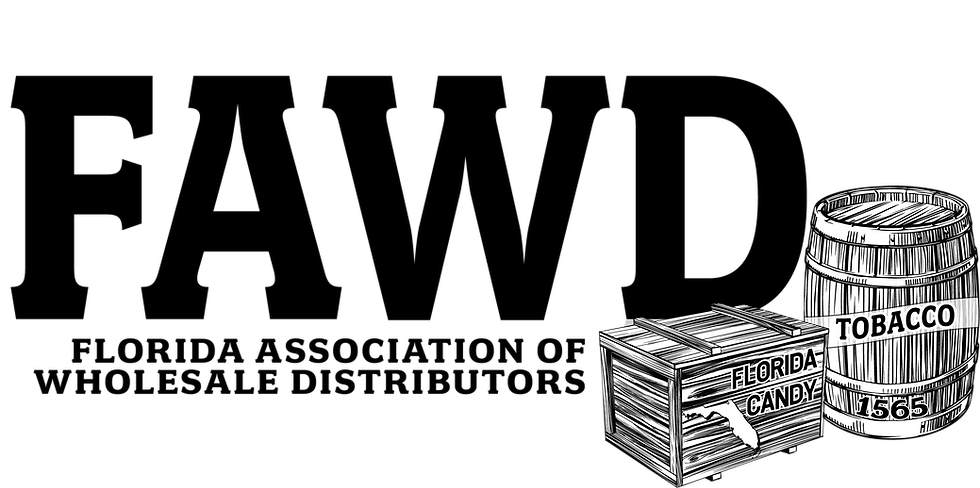OBBBA Provisions Affecting Distributors
- Beth Gosnell

- Jul 11, 2025
- 4 min read
Updated: Aug 8, 2025

As reported in the July 10th CDA News bulletin, President Trump signed the One Big Beautiful Bill Act (OBBBA) into law on July 4 after the reconciliation bill passed both the Senate and the House. Key provisions of the OBBBA that affect distributors include the following:
Estate and Gift Tax Exemption Increase: OBBBA permanently extends and increases the exemption for the estate and gift tax to $15 million for individual filers, and $30 million for married couples filing jointly, starting in tax year 2026. The exemption amount is indexed to inflation after 2026.
No Taxes on Overtime Pay: OBBBA establishes a deduction for overtime compensation for taxable years 2025 through 2028. The deduction is capped at $12,500 for individuals and $25,000 for joint filers and phases out for income that exceeds $150,000 for individuals and $300,000 for joint filers. While the deduction is effective on January 1, 2025, it provides transition relief for the first year allowing employers to approximate a separate accounting of amounts designated as qualified overtime compensation by any reasonable method.
Corporate Tax Rate: OBBBA did not increase corporate income tax rates and maintained the current 21% tax rate for corporations.
Marginal Tax Rates: The OBBBA permanently extends the 2017 Tax Cuts and Jobs Act’s (TCJA) lower rates for individuals beginning in 2026. The bill also provides an additional year of inflation in the cost-of-living adjustment for the 10%- and 12%-income tax brackets.
State and Local Tax (SALT) Deductions: The OBBBA temporarily increases the SALT deduction cap to $40,000 from its current $10,000 (and increases it by 1% annually through 2029). Households with income under $500,000 will qualify for the deduction. In 2030, the SALT deduction cap will revert back to $10,000. For income exceeding the $500,000 threshold, the deduction will phase down until it reaches a minimum of $10,000. The OBBBA does not impose any new limits on the SALT deduction for pass-through businesses, allowing state pass-through entity taxes (PTETs) to continue in efforts to avoid the SALT cap.
Employee Retention Tax Credit (ERTC): OBBBA includes provisions on the ERTC, including heightened due diligence requirements on promoters with respect to a taxpayer’s eligibility for an ERTC. It also prevents the IRS from paying out ERTC claims filed after January 31, 2024, for the third and fourth quarters of 2021. The provision is a pared-back version of the ERTC repeal initially proposed in the House, which sought to retroactively block all claims filed after January 31, 2024, including those filed for 2020 and the first two quarters of 2021. Due to the Byrd Rule, that language was changed and limited to the third and fourth quarters of 2021.
Standard Deduction: The OBBBA permanently extends the enhanced standard deduction, which is annually adjusted for inflation. It increases the standard deduction to $15,750 for individual filers and to $31,500 for joint filers.
Section 179 Depreciation Deduction: OBBBA increases the Section 179 deduction cap from $1 million to $2.5 million, with phase-outs beginning at $4 million for property placed in service after December 31, 2024.
Depreciation Deductions: The bill permanently restores the 100% bonus depreciation rate for certain property if it was placed in service on or after Jan. 19, 2025. The legislation also allows taxpayers to immediately deduct 100% of the cost of qualified production property that is put in service before 2031. It increases the maximum amount that could be deducted for certain depreciable business assets to $2.5 million. It phases out for costs of qualifying property that exceeds $4 million.
Business Interest Expenses: The OBBBA reinstates more favorable treatment for business interest expenses by allowing businesses to calculate their adjusted taxable income (ATI) without including deductions for depreciation and amortization beginning in tax year 2025. The provision is permanent.
Pass-Through Business Income: The bill keeps the 199A business deduction for pass-through companies at its current level of 20%. It also increases the phase-in range making the deduction more generous for those phasing out of the credit. In addition, the legislation creates a new minimum deduction of $400 for eligible taxpayers with at least $1,000 of pass-through income beginning in 2026.
Preserved LIFO Accounting Method: OBBBA retained the Last-In, First-Out inventory accounting method.
Corporate Charitable Donations: OBBBA places new limits on corporate charitable deductions, allowing corporate taxpayers to deduct charitable contributions between 1% to 10% of taxable income. The measure allows contributions beyond the cap to be carried forward for as long as five tax years.
Paid Leave: The 2017 Tax Cuts and Jobs Act’s (TCJA) paid family and medical leave tax credit for employers is made permanent under the OBBBA. The credit allows employers to claim non-refundable credits ranging from 12.5% to 25% of the wages paid to workers on paid leave.
Research and Development: The new law makes R&D immediate expensing permanent, reversing the change made by the 2017 Tax Cuts and Jobs Act (TCJA) and allowing businesses to immediately deduct the cost of their domestic research expenses in the year paid or incurred for tax years 2025 onward.
Opportunity Zones: The OBBBA modifies and makes permanent the Opportunity Zone program. It defines a low-income community as a census tract that doesn’t exceed 70% of the state’s median income or has a poverty rate of at least 20% and the median family income doesn’t exceed 125% of the state’s median income. The bill provides a 30% step-up in basis for opportunity zones in rural areas held for at least five years. For non-rural zones, the step-up in basis is increased by 10%.
$5 trillion Debt Limit Increase: The bill raises the debt limit by $5 trillion.

Comments